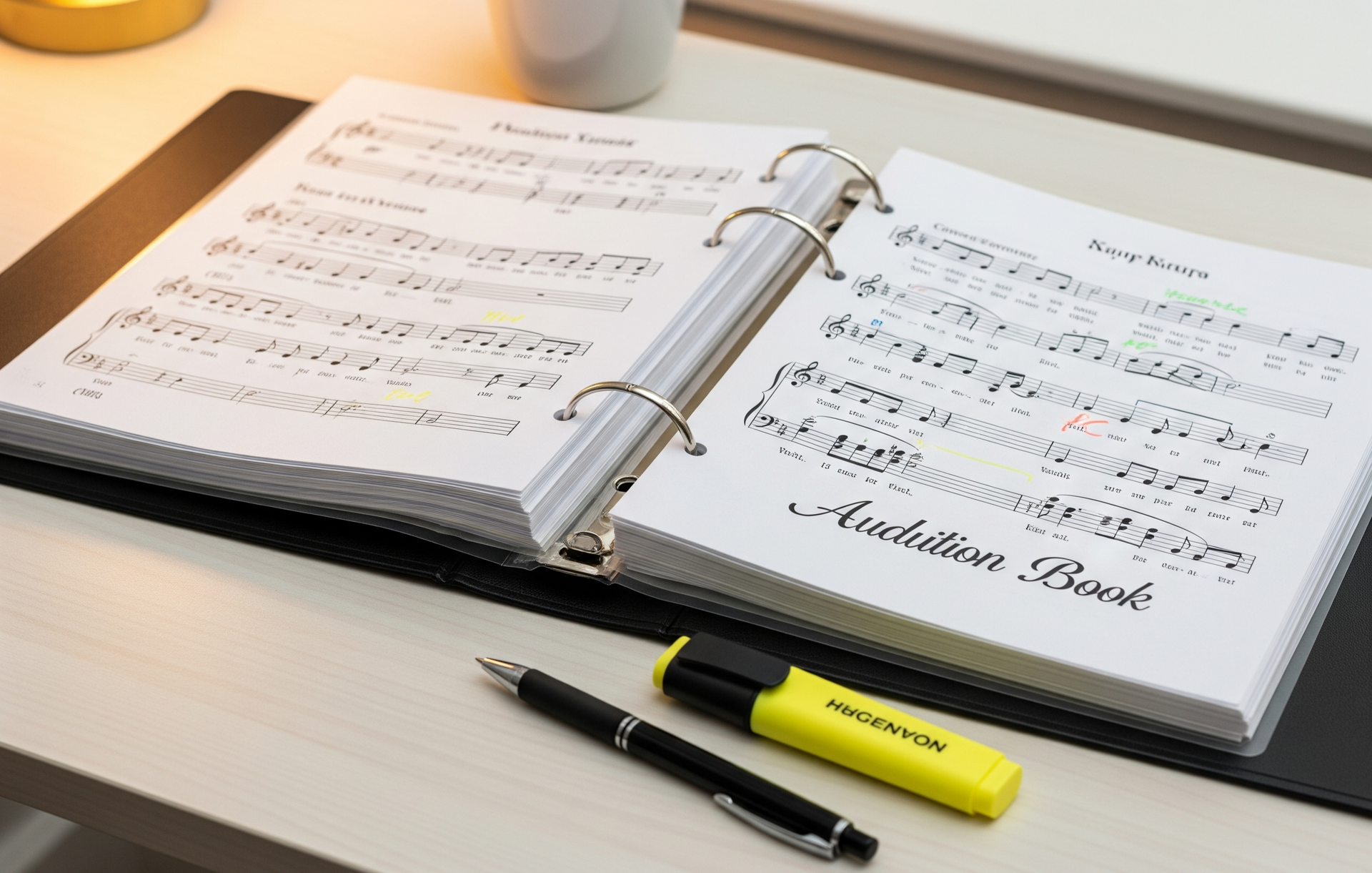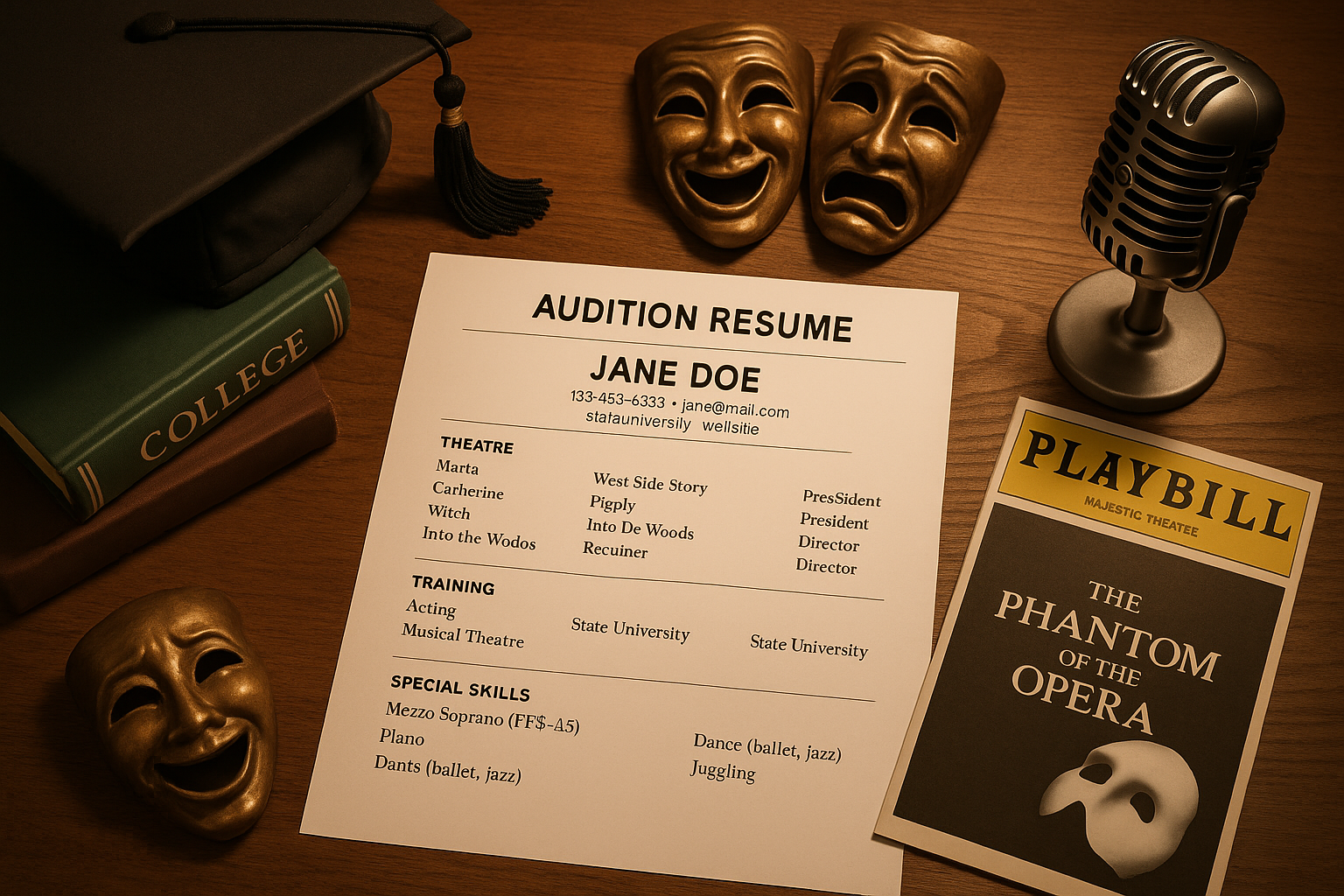The Equity Card: Your Golden Ticket or a
Professional Checkpoint?
By Victor Lopez
Greetings, fellow artists! Victor Lopez here, your vocal and performance coach at Lopez Studios Inc. in Northern Virginia. I'm excited to dive into a topic that's on the mind of every aspiring and working stage actor in the performing arts field: the Actors' Equity Association (AEA) card. For many, getting your Equity card is the holy grail, a symbol of professional achievement and a key to a world of new opportunities. But what does it really mean to have that card in your wallet? What doors does it open, and just as importantly, what does it not guarantee? Let's get real about the particulars.
What an Equity Card Is and What It Does
First and foremost, an Equity card signifies your membership in the Actors' Equity Association, the U.S. labor union for professional stage actors and stage managers. This union was founded over a century ago to protect the rights of performers in an often-exploitative industry. When you become a member, you gain access to a host of benefits that are designed to professionalize and stabilize your career.
The Power of Protection: The most significant benefit is the union's collective bargaining power. Equity negotiates contracts with producers to ensure its members receive:
- Minimum Salaries: A guaranteed base pay that is a living wage, not a meager stipend.
- Safe Working Conditions: Protection against unsafe or unsanitary environments in rehearsal and performance spaces.
- Clear Work Rules: Defined work hours, breaks, and days off to prevent burnout and overwork.
- Health and Pension Plans: Access to health insurance and a retirement plan, which are crucial for a long-term career.
- Dispute Resolution: A system for resolving conflicts with employers, ensuring fair treatment.
Access to Auditions: For many, the Equity card's biggest draw is the access it provides to auditions. Equity members are given priority at "Equity Principal Auditions" (EPAs) and "Equity Chorus Calls" (ECCs). Non-union actors may be seen, but it's not guaranteed, and they often have to wait for hours on a standby list. Being a card-carrying member means you have a much better chance of getting in the room and being seen.
How to Get Your Equity Card
There are a few primary paths to becoming an Equity member:
- Getting an Equity Contract: The most direct route is to be hired for a show under an Equity contract. Once you're offered a job on an Equity production, you become eligible to join.
- The Open Access Program: In a recent change, Equity has made it possible for professional actors who have worked in theater within their jurisdiction to apply for membership, regardless of whether they worked on an Equity contract.
- Joining a Sister Union: If you've been a member of a sister union like SAG-AFTRA (Screen Actors Guild – American Federation of Television and Radio Artists) for a year or more and have worked a qualifying job, you may be eligible to join Equity.
Is an Equity Card Required?
This is a question I hear all the time, and the answer is both yes and no.
It is NOT required to be a professional actor. You can have a thriving career in regional theater, commercials, film, and TV without ever having an Equity card. In fact, many successful actors choose to remain non-union for years to work on a wider variety of projects and build their resume. There are countless non-union productions from small independent theaters to non-union tours that provide valuable experience, networking opportunities, and a paycheck.
However, it IS required to work on most union contracts. If you aspire to perform on Broadway, on a major national tour, or at one of the many prestigious regional theaters across the country that have an Equity contract, you will eventually be required to join the union. Once you are hired on a qualifying union contract, you become a "must join" member. The card is the price of admission to that level of the industry.
So, is it required? Not to be a working actor, but it is required to work in the professional unionized theater world.
What an Equity Card Does NOT Guarantee
Now, let's talk about the hard realities. While your Equity card is a powerful tool, it is not a golden ticket. It's vital to be realistic about what it is and what it isn't.
1. It does not guarantee you a job. Having an Equity card simply gets you in the room. It does not guarantee you'll be cast, or that you'll have a consistent stream of work. The competition for roles remains incredibly fierce, and your talent, professionalism, and network are still the ultimate factors in getting hired.
2. It does not guarantee a high salary. While Equity sets a minimum wage, many members' annual earnings from union contracts are still quite low. The vast majority of actors need to have a "day job" or a "side hustle" to make ends meet. The Equity card protects you from being exploited, but it doesn't automatically make you a full-time, self-sustaining actor.
3. It can close off certain opportunities. Once you join Equity, you are generally prohibited from working on non-union productions. This means many smaller regional theaters, storefront productions, and non-union tours are off-limits. For actors in smaller markets or those just starting out, this can be a significant drawback. It's a trade-off: you gain union protection, but you may lose out on some local or experimental work.
4. It comes with financial obligations. Membership isn't free. You'll need to pay a one-time initiation fee, along with annual dues and "working dues," which are a percentage of your earnings from Equity contracts. These costs are part of the investment you make in your career and your union, but they are a factor to consider.
My Advice with 30+ Years in the Business
Having navigated this industry for over three decades, I've seen countless talented individuals pursue their dreams. Here's what I always tell my students at Lopez Studios Inc.:
Your craft is paramount. The Equity card is a professional credential, but it's your talent, dedication, and continuous training that will truly open doors and sustain your career. Never stop learning, refining your skills, and investing in yourself as an artist.
Networking is not just about who you know; it's about who knows you and your work. Be kind, be professional, and be memorable for the right reasons. Every interaction is an opportunity.
Resilience is your superpower. This industry is full of "no's." Learn from them, grow from them, and never let them extinguish your passion. Your ability to bounce back and keep going will define your longevity.
Understand the business side. The Equity card is part of understanding the business. Know your rights, understand contracts, and be your own best advocate.
The Realistic Mindset
So, should you get your Equity card? The answer is personal and strategic. It's a major step that should be taken when you are ready to commit to a career in professional theater. Your goal as an actor should always be to cultivate your craft, build your network, and book great work. The Equity card is a tool that helps you do that, and it's a testament to your professional progress. But it's not the end of the journey, it's the beginning of a new one.
As your master coach, I encourage you to see the Equity card for what it is: a powerful symbol of your commitment to the art and your career, a provider of crucial protections, and a gateway to new opportunities. Just remember to keep your focus on the work itself. Keep training, keep auditioning, and keep growing as an artist. The card will follow the work.
Ultimately, the stage is calling. Whether you're non-union building your experience or an Equity member navigating Broadway, your unique voice and talent are needed. Embrace the journey, commit to excellence, and never stop pursuing the magic of live performance. The lights are waiting for you.
RELEVANT RESOURCES TO EXPLORE
COMING SOON!
SHARE THIS BLOG POST










